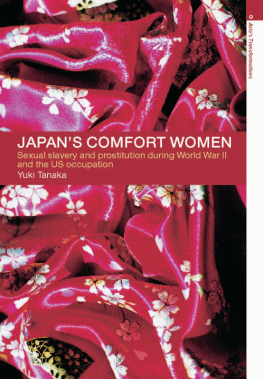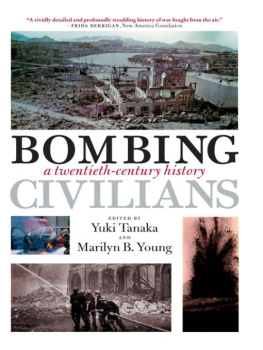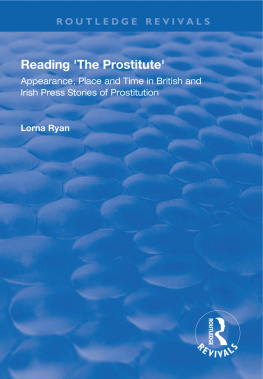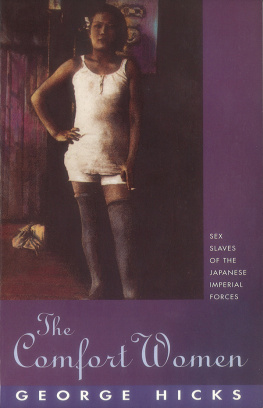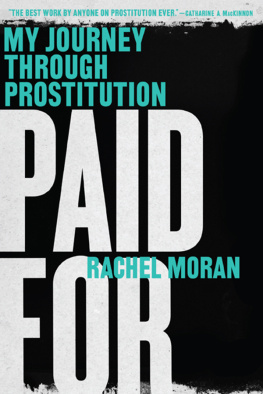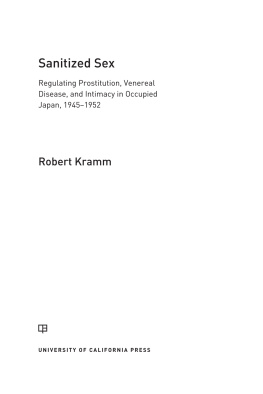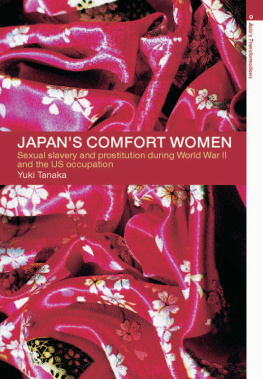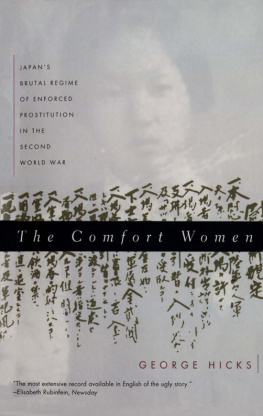Japans Comfort Women
This groundbreaking and highly controversial book reveals how sex is used and abused to maintain military morale and discipline. It reveals the story of the comfort women who were forced to enter prostitution as sexual slaves of the Japanese Imperial Army in the period immediately before and during World War II.
Using previously untapped personal testimonies and an unprecedented range of archival and documentary research, Yuki Tanaka exposes Japanese military and political leaders who ordered and controlled this regime of sexual exploitation, and movingly describes its devastating effects on the lives of scores of thousands of Asian women victims.
Controversially, Japans Comfort Women also examines the sexual conduct of the Allied forces in this period and the nature of the postwar comfort women system that Japan created to service US soldiers during the Occupation. The authors exhaustive research in Japanese, American and Australian archives reveals how the US government, for reasons of political expediency, failed to prosecute as war criminals those responsible for the comfort women system.
This book offers unique insights into this terrible episode in Japanese, Asian and American history and the broader dimensions of military violence against women.
Yuki Tanaka is a Professor at the Hiroshima Peace Institute, Hiroshima City University, Japan. He is the author of the provocative, bestselling book Hidden Horrors: Japanese War Crimes in World War II, and was the historical advisor on a recent BBC TV documentary film series, Horror in the East.
Asias Transformations
Edited by Mark Selden
Binghamton University and Cornell University, USA
The books in this series explore the political, social, economic and cultural consequences of Asias twentieth-century transformations. The series emphasizes the tumultuous interplay of local, national, regional and global forces as Asia bids to become the hub of the world economy. While focusing on the contemporary, it also looks back to analyze the antecedents of Asias contested rise.
This series comprises two strands:
Asias Transformations aims to address the needs of students and teachers, and the titles will be published in hardback and paperback. Titles include:
Debating Human Rights
Critical essays from the United States and Asia
Edited by Peter Van Ness
Hong Kongs History
State and society under colonial rule
Edited by Tak-Wing Ngo
Japans Comfort Women
Sexual slavery and prostitution during World War II and the US occupation
Yuki Tanaka
Opium, Empire and the Global Political Economy
Carl A Trocki
Chinese Society
Change, conflict and resistance
Edited by Elizabeth J Perry and Mark Selden
Maos Children in the New China
Voices from the Red Guard generation
Yarong Jiang and David Ashley
Remaking the Chinese State
Strategies, society and security
Edited by Chien-min Chao and Bruce J Dickson
Routledge Studies in Asias Transformations is a forum for innovative new research intended for a high-level specialist readership, and the titles will be available in hardback only. Titles include:
1. The American Occupation of Japan and Okinawa*
Literature and memory
Michael Molasky
2. Koreans in Japan
Critical voices from the margin
Edited by Sonia Ryang
3. Internationalizing the Pacific
The United States, Japan and the Institute of Pacific Relations in war and peace, 19191945
Tomoko Akami
4. Imperialism in South East Asia
A fleeting, passing phase
Nicholas Tarling
* Now available in paperback
Japans Comfort Women
Sexual slavery and prostitution during
World War II and the US occupation
Yuki Tanaka
What our fathers did not tell us
First published 2002 by Routledge
11 New Fetter Lane, London EC4P 4EE
Simultaneously published in the USA and Canada
by Routledge
29 West 35th Street, New York, NY 10001
Routledge is an imprint of the Taylor & Francis Group
This edition published in the Taylor & Francis e-Library, 2003.
2002 Yuki Tanaka
All rights reserved. No part of this book may be reprinted or reproduced or utilised in any form or by any electronic, mechanical, or other means, now known or hereafter invented, including photocopying and recording, or in any information storage or retrieval system, without permission in writing from the publishers.
British Library Cataloguing in Publication Data
A catalogue record for this book is available from the British Library
Library of Congress Cataloging in Publication Data
Tanaka, Toshiyuki, 1949
Japans comfort women: sexual slavery and prostitution during World War II and the U.S. occupation / Yuki Tanaka.
p. cm. (Asias transformations)
Includes bibliographical references and index.
1. Comfort womenAsia. 2. World War, 19391945WomenAsia. 3. JapanHistoryAllied occupation, 19451952. 4. SoldiersJapanSexual behavior. 5. SoldiersUnited StatesSexual behavior. I. Title. II. Series.
D810.C698 T36 2001
940.54050922519dc21
2001048307
ISBN 0-203-30275-3 Master e-book ISBN
ISBN 0-203-34456-1 (Adobe eReader Format)
ISBN 0415194008 (hbk)
ISBN 0415194016 (pbk)
For Mika and Alisa
Contents
Figure and tables
Figure
Tables
Plates
Foreword
By Susan Brownmiller
In December 1991, three Korean women who had been abducted into Japanese military brothels during World War II filed a dramatic class-action lawsuit in a Tokyo court. After a half-century of shame, anonymity, and hardship, the aged survivors were ready to tell their personal stories, and to demand an apology and reparations from the Japanese government on behalf of an estimated 100,000 victims.
The womens campaign had begun in Seoul with a call for a public memorial and had escalated into impromptu confrontations with Japanese diplomats. Their tactical leader, an active feminist, was Professor Yun Chung Ok of Ehwa Womens University. As a young schoolgirl, Professor Yun herself had narrowly escaped abduction and conscription into the brothels. Aided by church women and a sisterly coalition of Japanese feminists who were equally intent on righting an historic wrong, the Koreans demand for belated justice was covered widely by the foreign media, putting the term comfort woman into the international lexicon.
Thus, the world learned of a highly organized trafficking system during the Pacific War run by the Japanese Imperial Army, secret police, and local labor recruitors using the ruse of legitimate jobs for good pay. Girls and women taken from country villages, or hijacked in broad daylight on city streets, became a human cargo that was transported to barracks on frontline posts, jungle airstrips, and base camps, where the captives remained in sexual servitude until the wars end.
Japans military brothels were not exactly an undocumented story when the Korean comfort women launched their international campaign. Two books on the subject published in the 1970s had assumed a modest place in Japans growing literature of conscience, but the research of Kim Il Myon, a Korean, and Senda Kako, a Japanese, had produced little interest and only scant indignation. It took the rise of an indigenous feminist movement in Asia to supply the moral outrage and place the dormant issue in a modern context.

